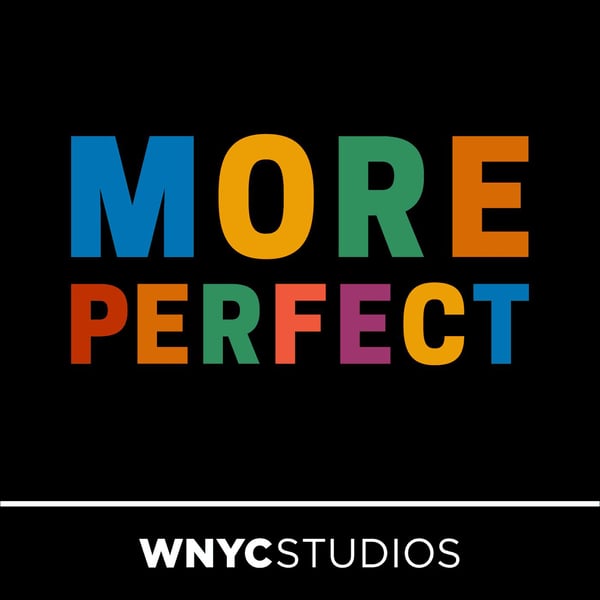Adoptive Couple v. Baby Girl Reprise
More Perfect
WNYC Studios
4.8 • 14.7K Ratings
🗓️ 22 June 2023
⏱️ 46 minutes
🧾️ Download transcript
Summary
Last week, the Supreme Court upheld the Indian Child Welfare Act in a case called Haaland v. Brackeen. The decision comes almost exactly 10 years after the Supreme Court ruled in Adoptive Couple v. Baby Girl, which planted the seed for last week’s big ruling. To mark the new landmark decision, More Perfect re-airs the Radiolab episode that tells the story of two families, a painful history, and a young girl caught in the middle.
Voices in the episode include:
• Allison Herrera — KOSU Indigenous Affairs reporter
• Matt and Melanie Capobianco — Veronica's adoptive parents
• Dusten Brown — Veronica's biological father
• Mark Fiddler — attorney for the Capobiancos
• Marcia Zug — University of South Carolina School of Law professor
• Bert Hirsch — attorney formerly of the Association on American Indian Affairs
• Chrissi Nimmo — Deputy Attorney General for Cherokee Nation
• Terry Cross — founding executive director of the National Indian Child Welfare Association (now serving as senior advisor)
• Lori Alvino McGill — attorney for Christy Maldonado, Veronica’s biological mother
Learn more:
• 2013: Adoptive Couple v. Baby Girl
• 2023: Haaland v. Brackeen
• "Baby Veronica belongs with her adoptive parents" by Christy Maldonado
• "Doing What’s Best for the Tribe" by Marcia Zug
• "The Court Got Baby Veronica Wrong" by Marcia Zug
• "A Wrenching Adoption Case" by The New York Times Editorial Board
• National Indian Child Welfare Association
• In Trust podcast, reported by Allison Herrera
Supreme Court archival audio comes from Oyez®, a free law project by Justia and the Legal Information Institute of Cornell Law School.
Support for More Perfect is provided in part by The Smart Family Fund.
Follow us on Instagram and Facebook @moreperfectpodcast, and Twitter @moreperfect.
Transcript
Click on a timestamp to play from that location
| 0:00.0 | I'm Julia Lungoria. |
| 0:05.0 | This is more perfect. |
| 0:07.0 | I was sitting at my desk at my house scrolling, watching Scotus blog, as I often |
| 0:19.3 | am found in the middle and towards the end of June. |
| 0:23.1 | And to be honest, I screamed. |
| 0:26.2 | This week I called Alison Eretta, the indigenous affairs reporter at KOSU, Oklahoma Public Radio. |
| 0:33.2 | Yesterday was supposed to be the first day of my vacation, but I saw the decision. |
| 0:38.8 | And then I saw that Alito and Thomas were dissenting. |
| 0:42.1 | And I'm like, okay, that means that this decision is going to go the way that tribal nations |
| 0:47.6 | who have been speaking out on this case wanted it to go. |
| 0:51.1 | Alison did not go on vacation. |
| 0:53.9 | He's been following this case, Holland V. Brachene, for years. |
| 0:58.0 | I didn't expect this decision to go the way that it did. |
| 1:02.2 | What just happened? |
| 1:03.8 | Well, what just happened is that the United States Supreme Court left the Indian Child |
| 1:10.4 | Welfare Act intact. |
| 1:12.6 | And this decision affirmed tribal sovereignty for Native people. |
| 1:17.2 | It's the ability to govern yourself, to make your own laws, to have your own courts, |
| 1:22.4 | to have your own judges, to have your own police force, to have your own elected officials. |
| 1:28.5 | That's what tribal sovereignty is. |
| 1:30.6 | To longtime listeners of more perfect, the Indian Child Welfare Act might sound familiar. |
| 1:36.8 | This is the third time that the law has come before this record. |
... |
Please login to see the full transcript.
Disclaimer: The podcast and artwork embedded on this page are from WNYC Studios, and are the property of its owner and not affiliated with or endorsed by Tapesearch.
Generated transcripts are the property of WNYC Studios and are distributed freely under the Fair Use doctrine. Transcripts generated by Tapesearch are not guaranteed to be accurate.
Copyright © Tapesearch 2025.

